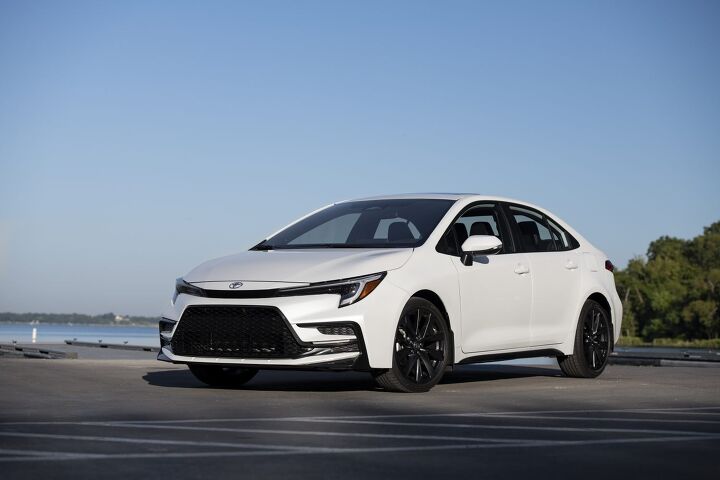
Consumer Reports has concluded its annual car reliability survey and the resulting data for 2023 has not been kind to all-electric vehicles. For 2023, CR reported that EVs had 79 percent more problems than automobiles that use internal combustion. Plug-in hybrids were even worse with 146 percent more issues. However, standard hybrids actually outperformed every other group with 26 percent fewer problems than vehicles wholly reliant on gasoline.
“Most electric cars today are being manufactured by either legacy automakers that are new to EV technology, or by companies like Rivian that are new to making cars,” Jake Fisher, senior director of auto testing at Consumer Reports, said in a release. “It’s not surprising that they’re having growing pains and need some time to work out the bugs.”
The biggest issues for EVs were reportedly failing electric drive motors, unreliable charging, and trouble with battery packs. Plug-in hybrids shared similar troubles, with Fisher stating that their usage of two entirely separate powertrains adds complexity that can undermine reliability. It makes sense from an engineering perspective. But it also left your author wondering why standard hybrids weren’t seeing the same number of problems.
Fellow TTAC author Chris Tonn noted that differing maintenance routines could have played a factor, using brakes as an example. Since hybrids use regenerative braking, they tend to outlast disc and drums by a wide margin. Automakers have also been building them a lot longer than their plug-in counterparts and they tend to be based on models that have been around for a while.
“It might not seem that long ago, but Toyota launched the Prius hybrid about 25 years ago,” Steven Elek, head of CR’s data analytics program, stated. “Automakers have been making hybrids long enough that they’ve gotten really good at it. Plus, many hybrids are also made by manufacturers that tend to produce reliable vehicles overall, such as Toyota, Hyundai, and Kia.”
While pure electrics didn’t perform so well, CR did state that the Tesla Model 3 and Model Y were the most mechanically sound EVs in its survey. However, the brand’s experience in building all-electric powertrains doesn’t seem to have helped it in every respect.
“While Tesla’s EV components are generally reliable, the company continues to struggle with the build quality of its vehicles,” said Elek. “Tesla powertrains are now pretty solid for the most part, but Tesla owners report a lot of build quality issues including irregular paint, broken trim, door handles that don’t work, and trunks that don’t close. All of these pull down the brand’s reliability score.”
Mechanical issues are weighted the most heavily in the Consumer Reports reliability survey. If a defect robs a vehicle of motive power and/or results in a giant repair bill, it’s deemed as more important than the windows failing to work or the paint being cheap. But those smaller items can still add up to bring down a vehicle or brand’s overall score. In the case of America’s preeminent EV company, Tesla landed mid pack — sandwiched between Infiniti and Ram.
Lexus and Toyota took the number one and two spots, respectively, and were followed by Mini, Acura, Honda, Subaru, Mazda, Porsche, BMW, and Kia. Meanwhile, brands ranked near the bottom included Chrysler, Mercedes-Benz, Rivian, Volkswagen, Jeep, Volvo, GMC, and Lincoln. Just about every other brand you’ve heard of fell between those nameplates in terms of CR’s reliability ranking.
But it’s worth keeping in mind that the results rely heavily on qualitative data furnished by survey respondents and only includes brands with a sufficiently large sample size. While select brands do seem to have a knack for building durable vehicles, there can also be massive disparities between individual models. Consumer Reports stated that it received responses on more than 330,000 vehicles using 20 potential problem areas ranging from motor and transmission issues to infotainment snafus and minor defects.
Brand-level scoring is determined by examining the weighted overall problem rate for all models within a brand for each model year. Then, overall reliability scores are calculated by averaging results from 2021 to 2023, and some early 2024 data for each brand, depending on sample size. Data is accrued primarily on model years from between 2000 and 2023. This is worth remembering, as a brand having a particularly good or bad stretch of years in the past would undoubtedly impact its overall performance today.
While body types weren’t as relevant as powertrain options in terms of reliability, traditional passenger vehicles continued to outperform the pack. Sedans, hatchbacks, and wagons yielded the highest overall reliability scores. SUVs, crossovers, and minivans were next. Pickups surprisingly came in last place, though this was attributed to truck manufacturers tending to come from less-reliable manufacturers and companies implementing some of their latest features on them. This also meant that all-electric pickups came in dead last in the survey, with more problems than any other vehicle type.
“Sedans have fallen out of favor with consumers, but as a class they are very reliable,” explained Fisher. “They often have less of the latest technology and features that can cause problems before the bugs are worked out.”
That said, there are exceptions to about every blanket statement made above and Consumer Reports attempted to address this. If you’re interested in digging a little deeper, we’d recommend reading its summary of why EVs performed so poorly or its abstract on the reliability between automotive brands.
[Image: Toyota]
Become a TTAC insider. Get the latest news, features, TTAC takes, and everything else that gets to the truth about cars first by subscribing to our newsletter.

